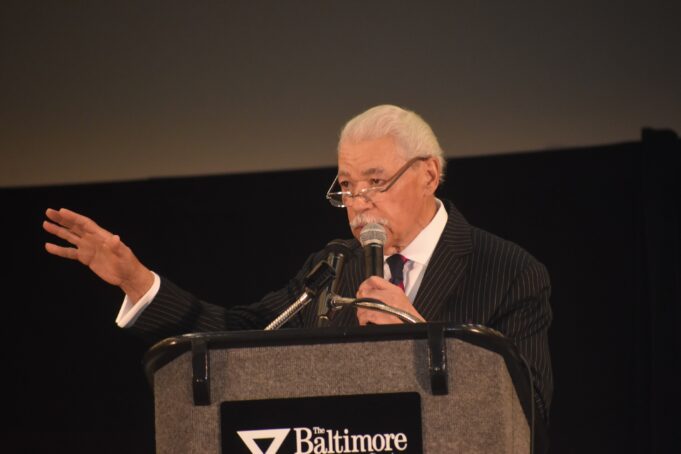by Nisa Islam Muhammad and Michael Z. Muhammad
The Final Call @TheFinalCall
BALTIMORE—The Institute of the Black World 21st Century (IBW) brought scholars and activists together for the 5th State of the Black World Conference. The five-day conference focused on transforming post-colonial societies in the Caribbean and Africa. The gathering also addressed how to enhance effective governance and development in those parts of the Black world.
“The significance of this conference is that this is an opportunity for a gathering of African American activists, advocates and community leaders as well as Black people from outside of the country from the Caribbean and from Africa,” Don Rojas, director of Communications and International Relations for the IBW, told The Final Call. “We had a town hall meeting on reparations and featured representatives from the United States, Europe, Latin America, and Africa.” The conference was held April 19-23 at the Baltimore Convention Center.
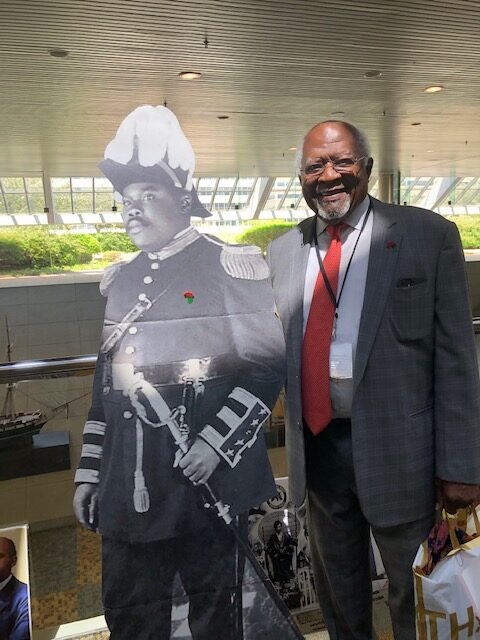
“The reparations movement is becoming more global. This conference helps to establish a footprint on the reparations movement that is becoming more global. I don’t think you’ll find anything quite like it anywhere in the U.S.,” said Mr. Rojas. The conference attracted high-level personalities such as former Prime Minister of Jamaica PJ Patterson. “He is very much involved in his capacity as an elder statesman for our movement,” said Mr. Rojas. “He speaks on behalf of the entire Black world.”
Prime Minister Patterson holds the distinction of being the longest-serving prime minister in Jamaica’s history. He opened the conference. “From our history, we gain an insight,” Prime Minister Patterson said, “and we define a challenge. The insight is an understanding that the modern pursuit of democracy and development reflects nothing more than the yearning of our ancestors for freedom and agency,” he added.
“The challenge is for us to build inclusive societies, encompassing social, economic and environmental progress, fully cognizant that this is nothing less than a sacred trust from the past.” Currently, he is “Statesman in Residence” at the PJ Patterson Center for Africa-Caribbean Advocacy at the University of the West Indies. The center coordinates public policy and advocacy in fostering and developing relations between the Caribbean and Africa and promotes dialogue at the level of heads of government.
He is credited with having laid the groundwork for the economic growth of modern Jamaica, presiding over massive infrastructure development, including the construction of highways, modernization of airports, telecom liberalization and expansion, as well as significant foreign investment inflows to the country’s tourism industry.
“Those who were engaged in the anti-colonial movement several generations after Emancipation, fully understand that the political departure of the colonial masters at independence was an important step, but only a solitary step on the journey to inclusive societies genuinely responsive to the needs, interests, and aspirations of each inhabitant,” added Prime Minister Patterson.
The conference working sessions focused on developing solutions on topics including environmental justice, socially responsible Black businesses, combatting gun violence and making Black lives matter. There was also a Hip Hop Summit to discuss the 50-year-old art form’s role in the Black freedom movement.
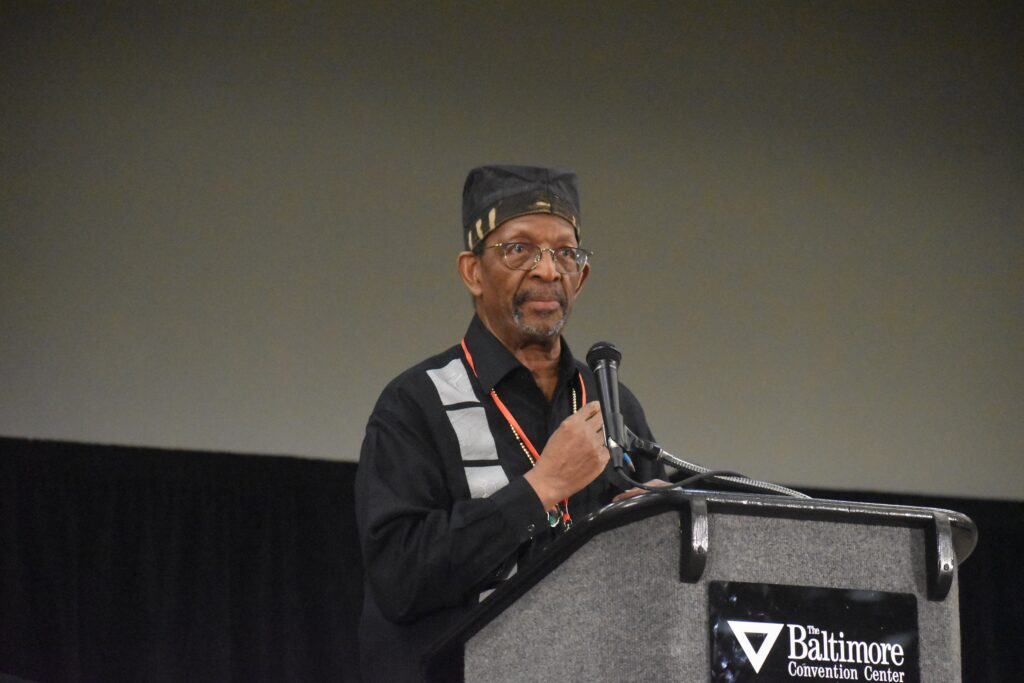
Latosha Henry works in downtown Baltimore and was intrigued when she saw so many Black people going into the convention center. She stopped by to see what was going on. Ms. Henry told The Final Call, “It’s not every day that you see Black people dressed in traditional clothes going in the convention center. I knew it had to be something important. I’m so glad I came. The sessions I attended were powerful.”
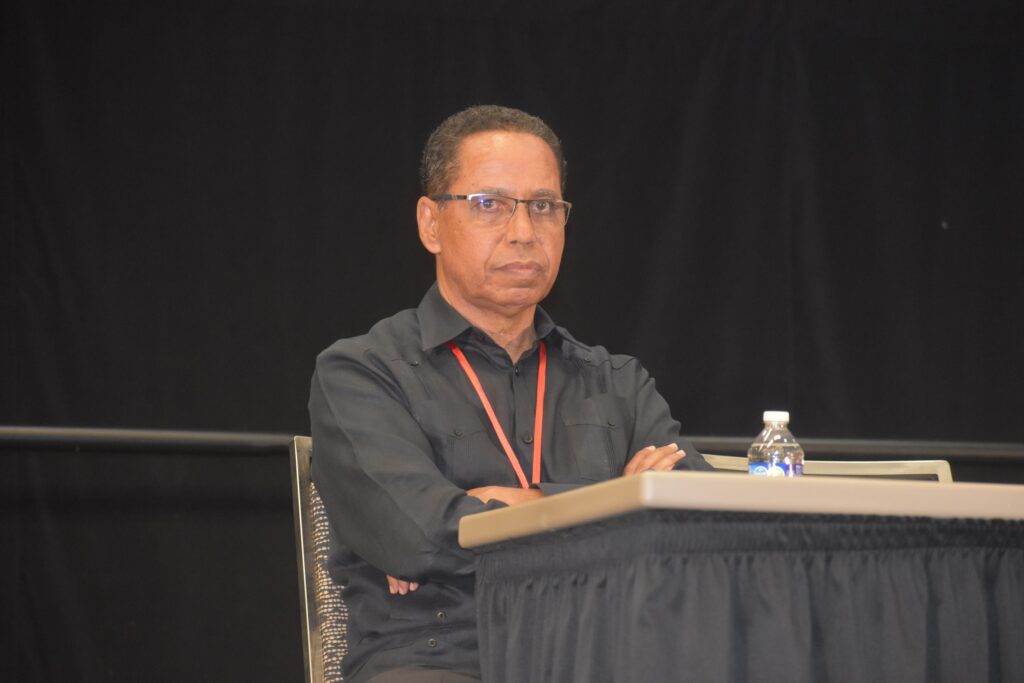
“I heard Dr. Julius Garvey speak, he’s the son of Marcus Garvey. That gave me chills knowing his son was here. I met a woman who said she was a Garveyite. This is stuff I read about but got to actually experience at this conference. The sessions were good, and I loved the African marketplace. I was able to buy things I haven’t seen elsewhere. My lunch hour was well spent at this conference, and I learned a lot,” she said.
In assessing the conference Dr. Ron Daniels its convener shared his thoughts with The Final Call in an extensive interview. “Overall, our efforts have been quite successful despite some challenges. While not financially wealthy, the Institute of the Black World 21st Century has managed to secure funding to undertake this major global conference. I’m proud to say we’ve effectively brought together individuals from diverse parts of the world to engage in important dialogues about significant issues.”
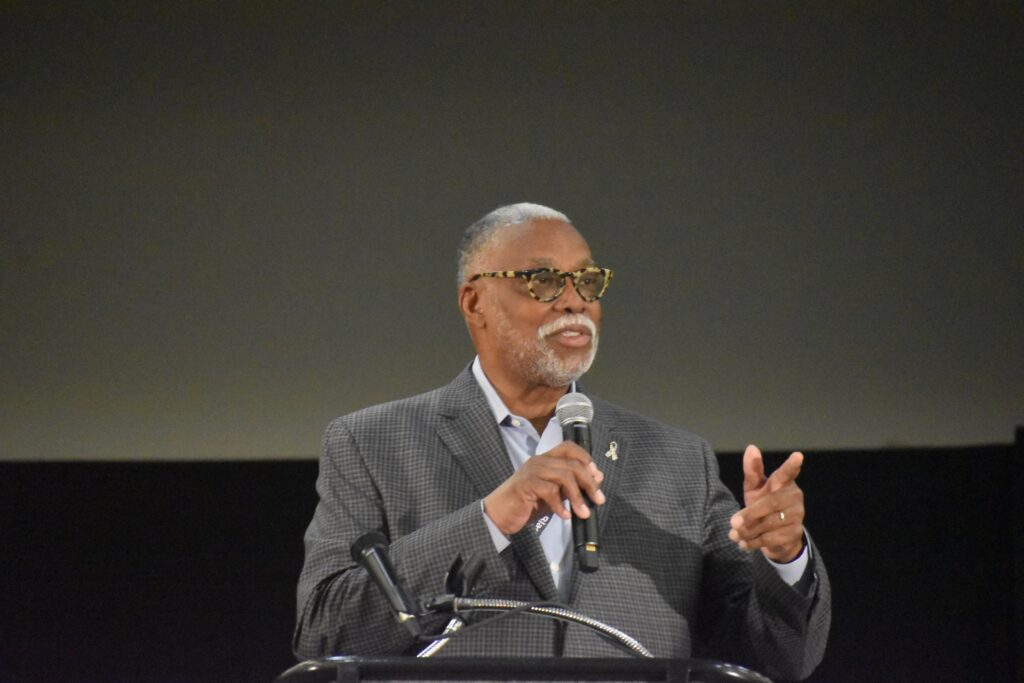
Dr. Daniels described a productive discussion about the current crisis facing Haiti and Columbia. “One speech in particular, delivered by PJ Patterson, was truly outstanding. He passionately challenged what Reverend Jesse Jackson refers to as the ‘international barracudas’ who ravage and pillage Black communities worldwide while offering insights into how we can develop post-colonial societies and rebuild the Caribbean and Africa. As a global statesman, his words were truly inspiring,” said Dr. Daniels.
He was equally inspired by the speech by Bobi Wine. “After listening to Bobi Wine’s speech, I believe we may have heard from the future president of Uganda. This has made for an incredible session filled with rich conversations and the exchange of ideas. As someone who strongly believes in the importance of connectivity, I see it as crucial that the UN, CARICOM, African Union, and Afro-Descendants in Central and South America are all connected. Brazil and Columbia’s roles in this cannot be overlooked. Ultimately, this vision brings us closer to fulfilling the Honorable Marcus Mosiah Garvey’s vision.”
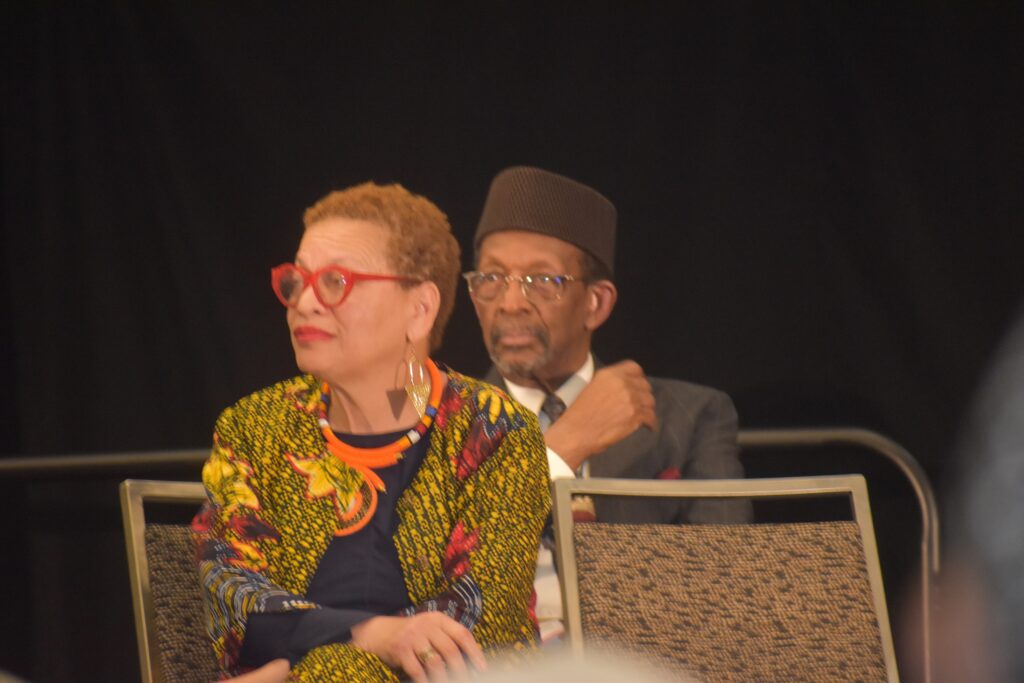
“In many respects, he was right when he said to look for me in the whirlwind and in the storm. We are that whirlwind as we engage in a shared process of exchange and education, recognizing that our lack of information and our tendency to fragment ourselves have contributed to our oppression.
Meanwhile, despite their differences, those who oppose us agree on one thing: that we, as a Black community, should never rise up. However, we are committed to the idea of Africans rising globally, pursuing empowerment, reparations, and healing. And in this regard, we are making progress,” Dr. Daniels concluded.
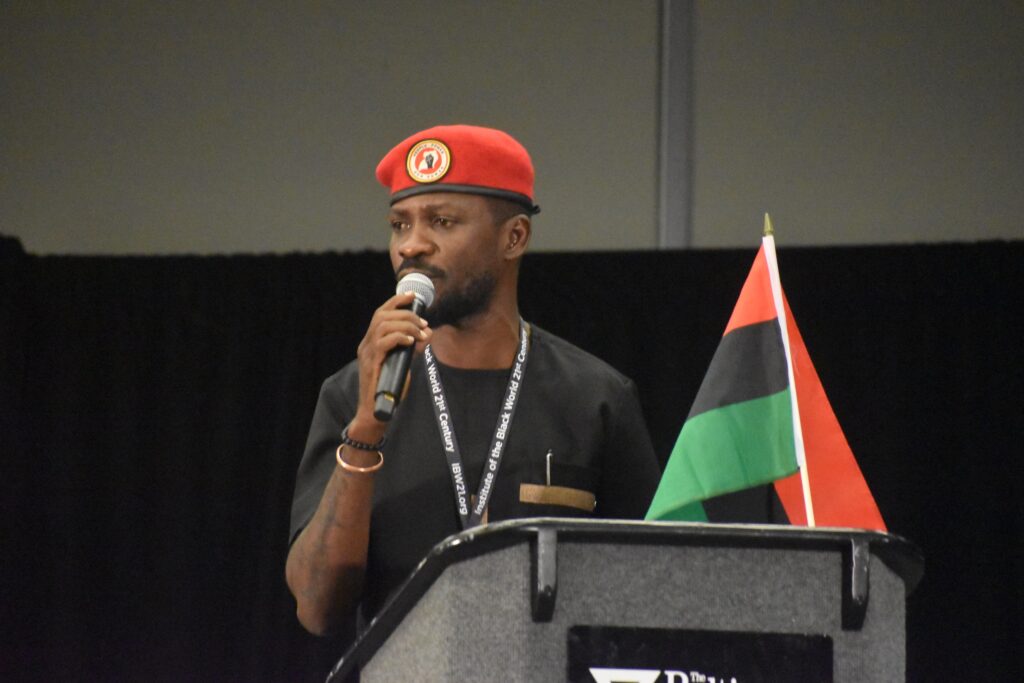
At the Black Mayor breakfast, host Kobi Little made a strong statement in his opening remarks. “We can’t just send Black elected officials to the office; we need to go with them.” The breakfast then took an interesting turn as participants discussed a Jamaican initiative to link their youth with those from Africa.
However, the proposition expanded to include Black American youth as well. Matthew Hampton of the New Black Wall Street offered to host the event at their new five-star hotel in Atlanta.
Participants also suggested that the Honorable Minister Louis Farrakhan of the Nation of Islam or a representative of his choosing should be included in the planning along with former Tuskegee, Alabama Mayor Johnny Ford serving as the point person. The exchange of ideas and connections displayed at the conference was an inspiring snapshot of the power of collaboration seen throughout the conference.
IBW21 board member Kevin Baker stated that the conference was a resounding success, boasting a nice turnout. “Attendees were treated to a wealth of invaluable information during the multitude of excellent sessions. Overall, it was a wonderful event,” he said.
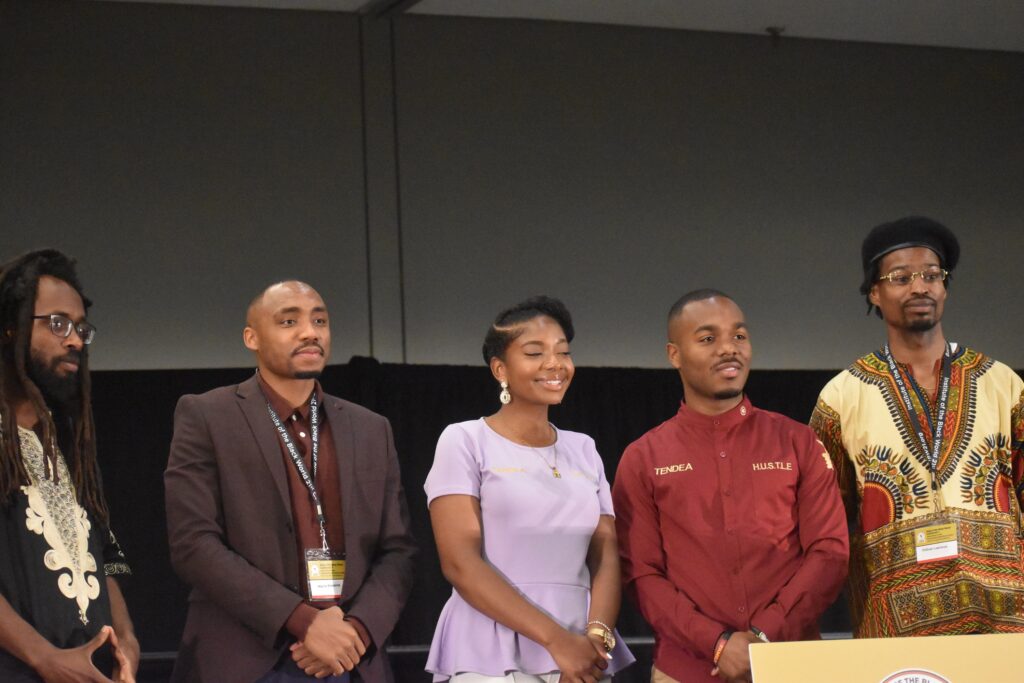
“The African diaspora faces complex issues that require multi-faceted solutions. At IBW, we believe in exploring all areas of concern, including education, economics, gun violence, gentrification, and Pan-Africanism. We aim to identify and address all pain points to begin the healing process.
While this may mean acknowledging uncomfortable truths, such as pulling off a scab to apply ointment, we believe it’s necessary to find complex solutions that will improve our mental, spiritual, physical, and economic well-being, and that’s what this conference accomplished,” Mr. Baker stated. For more information about the State of the Black World Conference, visit: www.ibw21.org.












